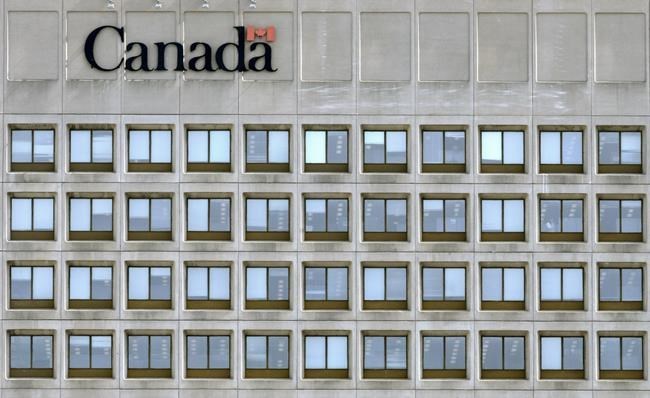OTTAWA ŌĆö Statistics sa╣·╝╩┤½├Į is reporting a significant increase in the rate of sexual assaults in the military, despite increased public and government attention on the issue.┬Ā
And at a time when the Armed Forces is trying to change its culture, diversify its ranks and recruit for thousands of unfilled jobs, the data suggests the problem is worse for younger women, Indigenous people, people with disabilities and members of the LGBTQ+ community.┬Ā
"These results are incompatible with (Defence Department) and CAF values and ethics," said Lt.-Gen. Jennie Carignan, the chief of professional conduct and culture.
"It is clear that there is an urgent need for the work we are doing to evolve our organizational culture and to target sexual misconduct specifically."
StatCan released the report Tuesday based on its 2022 survey of Armed Forces members, which examined the prevalence of sexual misconduct and sexual assault in the military workplace or outside work involving another military member.┬Ā
One-third of regular force members completed the voluntary survey and the results were weighted to represent the regular forces.
It found that 3.5 per cent of Canadian Armed Forces personnel were sexually assaulted by another military member or in the military workplace, a significant increase from the 1.6 per cent figure in the same survey in 2018, and the 1.7 per cent reported in 2016.
Statistics sa╣·╝╩┤½├Į defines sexual assault as sexual attacks, unwanted sexual touching and sexual activity when the victim was unable to consent.┬Ā
The vast majority of the assaults reported in the survey were unwanted touching and were reported as having been committed by a fellow CAF member who acted alone.┬Ā
The majority of victims said they did not report the assaults to authorities, in many cases because they did not think it would make a difference.┬Ā
That's in contrast to the 2018 and 2016 reports, which found the most common reason for not reporting was that the situation was resolved informally.┬Ā
Only one in five cases resulted in an official report in 2022.┬Ā
The new data also show there is a link between sexual misconduct and alcohol, something the military has been grappling with for years.┬Ā
One-third of those who said they were a victim of sexual assault said they believed the perpetrator's use of alcohol was a factor in the assault.
Carignan said there is typically a spike in sexual misconduct reports around December because of the large number of sanctioned and unsanctioned holiday events that feature alcohol.┬Ā
She said that this year, her office is working with the chain of command on prevention efforts. ┬Ā
But the Armed Forces does not plan to ban drinking at its events.┬Ā
"This is a one-size-fits-all solution that does not allow us to do better," Carignan said.┬Ā
Banning alcohol altogether "may create other, bigger issues in the background," like parties at private homes, she said.
Asked whether the military has a problem with alcohol, Defence Minister Bill Blair told reporters the problem is societal.
"Where it is a factor in these cases, then steps can be taken ŌĆ” in order to limit the impact that intoxication can have," he said.┬Ā
He did not say what steps those may be.┬Ā
"My message is that people should conduct themselves appropriately," Blair said, adding that he expects military leaders will properly supervise events.┬Ā
StatCan said just shy of 40 per cent of sexual assaults were reported to be committed by a supervisor or someone of higher rank.┬Ā
Lindsay Mathyssen, the NDP's defence critic, said in a statement that the report shows the government's efforts to tackle sexual misconuct in the military have failed.
"(CAF members) continue to face sexual violence and discrimination, and face retaliation or bullying from their chain of command when coming forward," she said.┬Ā
Mathyssen called on the Liberals to pass her private member's bill, which would remove the military's jurisdiction over criminal sexual offences.┬Ā
That change was recommended by former Supreme Court justice Louise Arbour in her May 2022 report, and it is something Blair says he is committed to doing. Arbour's report found victims cited a lack of faith in the military justice system as a barrier to reporting sexual misconduct.┬Ā
Carignan said her team is working to address the lack of reporting in part by overhauling the grievance system. ┬Ā
"What our members are telling us is that in many cases, the way their complaint is addressed is more harmful than the incident itself," Carignan said.┬Ā
Two-thirds of military members said they witnessed or experienced sexualized behaviour, including inappropriate comments or jokes, or discrimination based on gender, gender identity or sexual orientation.┬Ā
However, more than half who say they witnessed that inappropriate behaviour said they did intervene ŌĆö usually by talking to the perpetrator ŌĆö and reporting of sexualized or discriminatory behaviour was higher in 2022 than in previous years.
Carignan said that is a positive sign.┬Ā
StatCan said all 15 of the behaviours measured in the survey were more common in 2022 than in 2018, and one-third of women said they experienced at least one of those behaviours. That's twice the proportion of men who said the same.┬Ā
The rate of sexual assault was higher for women, at 7.5 per cent, than for men, at 2.8 per cent. Women make up 16 per cent of regular force members.┬Ā
At the same time, more men said they were victims of such an assault in 2022 than in 2018, and there was a particular increase among men aged 25 to 29.┬Ā
More than 60 per cent of military members said sexual misconduct is a problem, but three-quarters of members said they think the culture has improved since they joined the Armed Forces.┬Ā
This report by The Canadian Press was first published Dec. 5, 2023.
Sarah Ritchie, The Canadian Press


